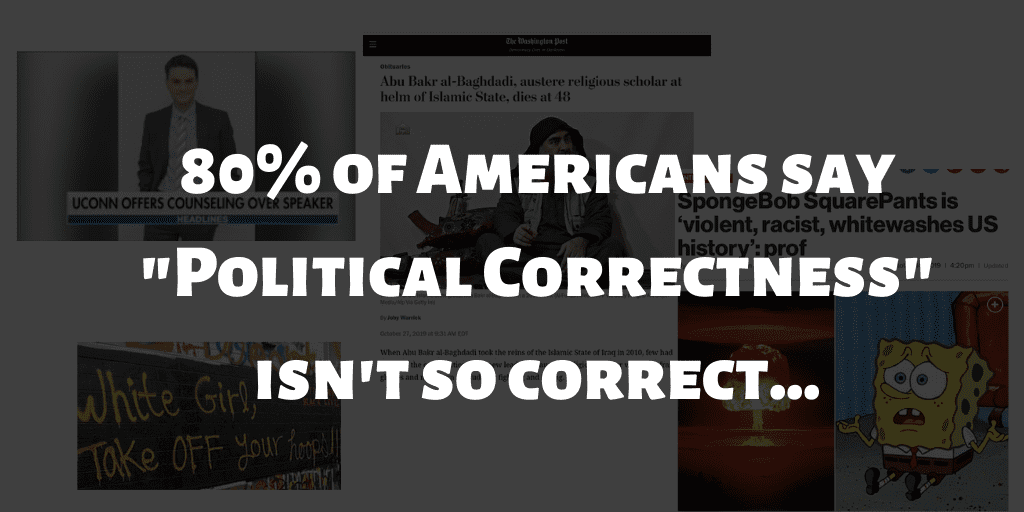Political correctness is a social phenomenon that aims to make society more inclusive and less hurtful, but there are times when it can go too far. This article explores ten instances when political correctness went overboard, such as the banning of the word “Christmas” in schools and companies, the removal of statues and monuments deemed offensive, the censorship of classic literature, the banning of certain Halloween costumes, and the limitation of free speech. It is important to strike a balance between inclusivity and personal choice, and to recognize and respect cultural differences while maintaining academic rigor. Ultimately, we must create a society that is truly inclusive, diverse, and just.
10 Times Political Correctness Went Too Far
Political correctness is the social phenomenon whereby certain words or actions are deemed offensive or inappropriate in certain contexts. While the intention of political correctness is to make our society more inclusive and less hurtful, there are times when it can go too far. Let’s take a look at ten examples where political correctness went overboard.
1. Banning “Christmas”
In an effort to be more inclusive, some schools and companies have banned the use of the word “Christmas” around the holiday season. Instead, they opt for more generic terms like “holiday” or “winter” celebrations. While the intention may be good, the result is that the tradition of Christmas is being suppressed in the name of political correctness.
2. Removing Statues
Statues and monuments that are deemed offensive have been removed from public spaces in recent years. While this may be seen as a good thing, it can also be argued that it erases history and makes it difficult to learn from past mistakes. It’s important to remember our history, even the parts that are uncomfortable or offensive.
3. The Censorship of Classic Literature
Classic literature, such as Mark Twain’s “Adventures of Huckleberry Finn” and Harper Lee’s “To Kill a Mockingbird,” have been banned in some schools because they contain offensive language and themes. While these books may be uncomfortable to read, they are also powerful tools for exploring the societal injustice of their respective time periods. It is important to read and study classic literature to better understand our history and learn from it.
4. Non-Inclusive Words
New words and phrases are being created all the time to be more inclusive of different genders, races, and cultures. However, it has also led to the shaming and banning of words that are deemed non-inclusive. For example, the use of “mankind” instead of “humankind” has been criticized for being exclusive of women. While it is important to be mindful of our language, it is also important to recognize that language is constantly evolving and changing.
5. Banning Certain Halloween Costumes
In recent years, certain Halloween costumes have been banned for being insensitive or offensive. While this is understandable for costumes that are clearly racist or discriminatory, such as blackface or Native American headdresses, it can be argued that banning costumes altogether is an overreaction. Halloween is a time for creativity and self-expression, and banning certain costumes takes away from that.
6. Limited Free Speech
Free speech is a fundamental human right, but it has been limited in recent years in the name of political correctness. For example, some universities have disinvited controversial speakers or relegated them to “free speech zones.” This limits the ability to engage in open dialogue and understand different perspectives. It is important to advocate for free speech while still being mindful of the impact of our words.
7. Referring to People as “They”
Some individuals prefer to be referred to as “they” instead of “he” or “she” in order to be more inclusive of non-binary gender identities. While it is important to be respectful of people’s identities and preferences, mandating the use of “they” as a singular pronoun can be confusing and problematic. It is important to strike a balance between inclusivity and clarity in our language.
8. The Failure to Recognize Cultural Differences
While it is important to be inclusive of different cultures and backgrounds, it is also important to recognize and respect cultural differences. For example, the push to eliminate cultural appropriation has led to the shaming and banning of certain cultural practices, such as wearing a kimono or getting a henna tattoo. It is important to recognize the complexity of cultural exchange and respect the unique values and traditions of different cultures.
9. Banning Certain Foods
Certain foods, such as pork or beef, have been banned in some schools or workplaces in order to be more inclusive of different dietary restrictions. While it is important to accommodate different dietary needs, mandating the elimination of certain foods can be an overreaction. It is important to strike a balance between inclusivity and personal choice.
10. Dilution of Academic Standards
In an effort to be more inclusive, some academic standards have been lowered or modified to be more accommodating of different backgrounds and experiences. While it is important to recognize the challenges faced by marginalized communities, it is also important to maintain high academic standards in order to ensure that students are prepared for the challenges of the real world. It is important to strike a balance between inclusivity and academic rigor.
Conclusion
Political correctness is an important social phenomenon that seeks to make our society more inclusive and less hurtful. However, there are times when political correctness goes too far and ends up suppressing tradition, erasing history, limiting free speech, and diluting academic standards. It is important to strike a balance between inclusivity and personal choice, and to recognize and respect cultural differences. Only then can we truly create a society that is inclusive, diverse, and just.
